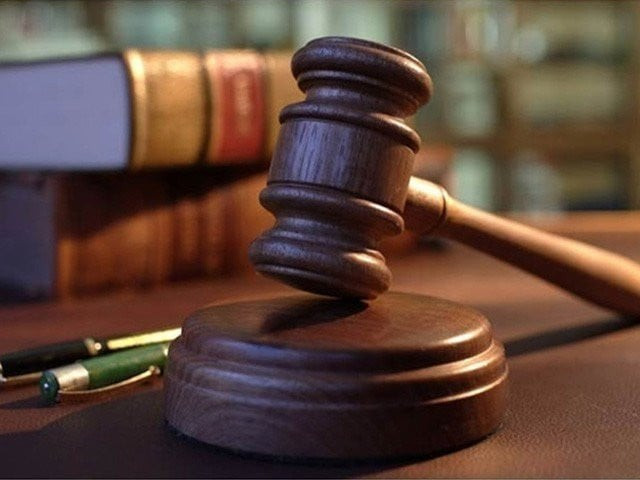Legal experts see limited scope of judicial review
A senior lawyer says it will be a case of first impression in case dissolution is challenged

The legal experts see a limited scope of judicial review in case the dissolution of Punjab Assembly is challenged in superior courts.
A senior lawyer observed that it will be a case of first impression in case the dissolution is challenged before any constitutional court – either Lahore High Court or Supreme Court.
He noted that Punjab Chief Minister Parvez Elahi’s advice for the dissolution of assembly was not against the spirit of Constitution, saying he had exercised his constitutional powers.
However, another lawyer maintained that the chief minister and premier’s discretionary powers regarding the dissolution of assemblies should be regulated, adding that there needed to be a valid reason for dissolving the assembly.
He questioned what would happen if a chief minister dissolves an assembly two months after the general elections, while giving an example of UK parliament wherein lawmakers complete their tenure despite several in-house changes.
Renowned lawyer Hafiz Ahsaan Ahmed Khokhar stated that major changes had taken place in the Constitution after the 18th and 20th amendments regarding the dissolution of assemblies and appointment of caretaker governments both at the Centre and provincial level.
He said the amendments had limited the role of a president and governor and increased the role of the chief executive of the country and chief executive of a province.
Read CM Elahi sends summary for PA dissolution to governor
“As per Article 112 of the Constitution, the Governor shall dissolve the Provincial Assembly if so advised by the Chief Minister; and the Provincial Assembly shall, unless sooner dissolved, stand dissolved at the expiration of forty-eight hours after the Chief Minister has so advised.”
The lawyer noted that as in the present case Elahi had given his advice for the dissolution of Punjab Assembly, the same would come into effect if not so by the governor within 48 hours and that election would be held within 90 days.
According to constitutional experts, under Article 112 (1) of the Constitution, the governor of a province is bound and has no legal choice except to dissolve the provincial assembly if so advised by the chief minister.
Khokhar mentioned that a caretaker prime minister shall be appointed by the president in consultation with the premier and the leader of the opposition in the outgoing National Assembly, adding that a caretaker chief minister shall be named by the governor in consultation with the chief minister and the leader of the opposition in the outgoing provincial assembly.
He said if the premier or a chief minister and their respective leader of the opposition do not agree on any person to be appointed as a care-taker prime minister or caretaker chief minister, as the case may be, the provisions of Article 224-A of Constitution shall be followed.
According to the lawyer, in case the prime minister and leader of the opposition in the outgoing National Assembly do not agree on any person to be appointed as the caretaker premier, within three days of the dissolution of the National Assembly, they shall forward two nominees each to a committee to be immediately constituted by the speaker of the National Assembly.
The committee would comprise eight members of the outgoing National Assembly, or Senate, or treasury and the opposition, and will be nominated by the premier and the leader of the Opposition respectively.
The legal expert further stated that in case a chief minister and the leader of the opposition in the outgoing provisional assembly do not agree on any person to be appointed as the caretaker chief minister, within three days of the dissolution of that assembly, they shall forward two nominees each to a committee to be immediately constituted by the speaker of the provincial assembly.
Read more Punjab governor withdraws order to de-notify CM
The committee would comprise six members of the outgoing provincial assembly and have equal representation from the treasury and the opposition. It will be nominated by the chief minister and the leader of the opposition respectively.
The committee constituted under clause (1) or (2) shall finalise the name of the caretaker prime minister or caretaker CM, as the case may be, within three days of the referral of the matter to it.
In case of inability of the committee to decide the matter in the aforesaid period, the names of the nominees shall be referred to the Election Commission of Pakistan for final decision within two days.
Khokhar maintained that the incumbent chief minister shall continue to hold office till the appointment of the caretaker CM as per the Constitution.
He further said that the role and functions of the caretaker governments were set out in Section 230 of Election Act 2017, adding that a caretaker government shall perform its functions to attend to day-to-day matters which were necessary to run the affairs of the government and assist the Commission to hold elections in accordance with the law.
A section of lawyers believes that Supreme Court may intervene in the matter of Punjab Assembly to find out a middle way.



















COMMENTS
Comments are moderated and generally will be posted if they are on-topic and not abusive.
For more information, please see our Comments FAQ